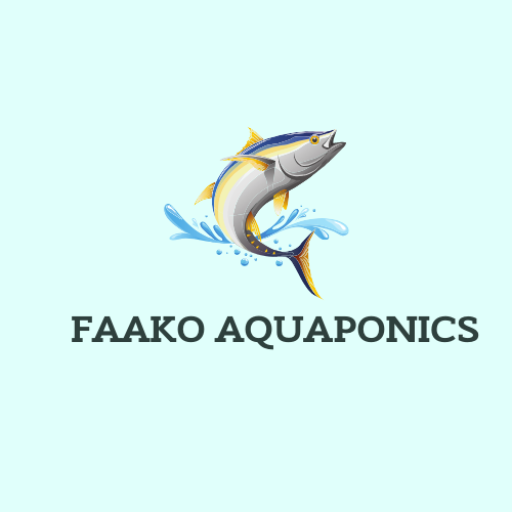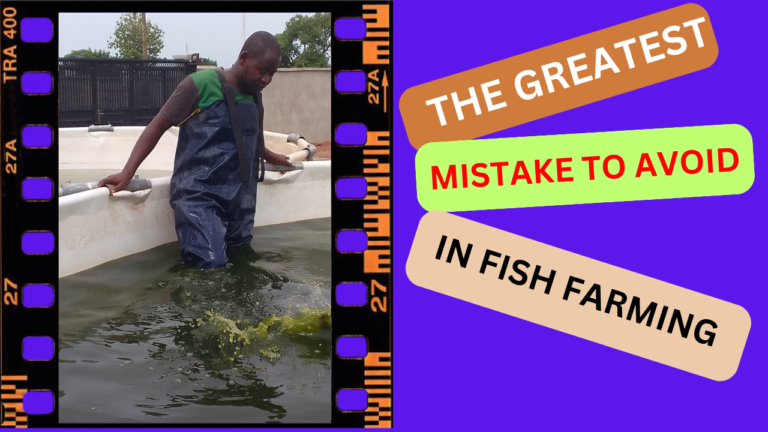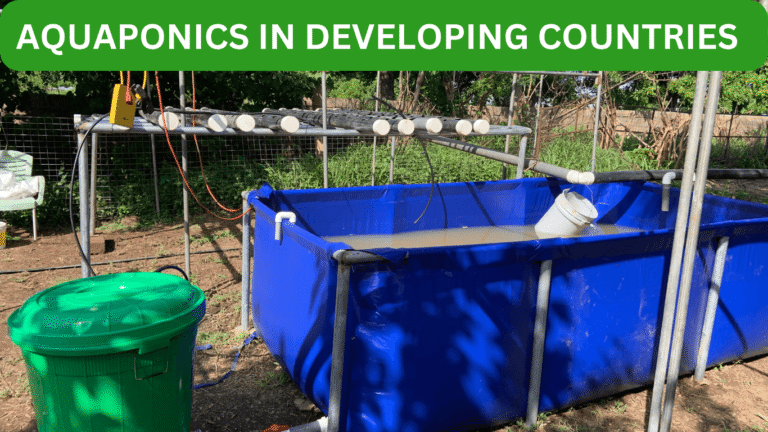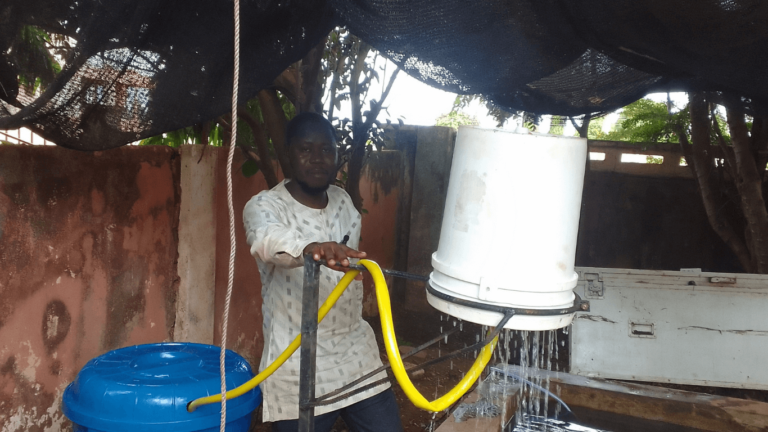Overfeeding fish is one of the most common yet critical mistakes made by many farmers, especially beginners.
Overfeeding can have severe consequences on the health of your fish, the water quality, and your overall productivity.
In this article, we’ll explore why overfeeding fish is a dangerous error, how it impacts your farm, and what you can do to avoid it.
Why Overfeeding Fish Is a Common Mistake
It’s easy to understand why farmers fall into the trap of overfeeding. Many believe that the more feed you give, the faster and larger the fish will grow. While it’s true that feeding your fish adequately is essential for their growth, overfeeding them can be detrimental. When fish are given more food than they need, the excess food isn’t eaten and begins to decompose, which introduces several serious issues.
The Dangers of Overfeeding Fish
1. Water Quality Deterioration
Overfeeding leads to leftover feed accumulating at the bottom of the pond. This leftover feed dissolves in the water, breaking down and releasing ammonia into the pond. High ammonia levels in fish ponds reduce the water quality significantly, leading to oxygen depletion, which is essential for the fish’s survival. Without enough oxygen, fish experience stress, become more susceptible to diseases, and may eventually die.
2. Oxygen Depletion
One of the most significant dangers of overfeeding fish is oxygen depletion. As the ammonia levels rise from decomposed food, oxygen levels decrease. Fish require a high amount of dissolved oxygen to survive, and with lower oxygen levels, they become stressed and are prone to infections. This chain reaction can quickly lead to mass fish mortality.
3. Increased Waste Production
Fish excrete waste, and when they are overfed, their waste production increases. This contributes to more waste material in the pond, further reducing the water’s quality. Within just a few days, the pond water can become smelly and cloudy, indicating poor water quality. Dirty water not only stresses your fish but also creates an environment ripe for diseases.
4. Feed Wastage
When you overfeed your fish, you’re wasting money. Fish only consume the feed they need, and the rest becomes waste. Instead of benefiting from growth, you’re throwing away feed that could have been used efficiently over time. By monitoring your feeding practices, you can minimize waste and reduce the overall cost of feeding your fish, which can enhance your profit at harvest.
How Overfeeding Affects Fish Physiology
Overfeeding can have physiological impacts on your fish. Just like humans, when fish eat too much, their digestive systems become overloaded. Overeating weakens the digestive enzymes, slowing down digestion and nutrient absorption. When fish cannot properly digest their food, their feed conversion ratio (FCR) declines, meaning they grow less efficiently.
Fish, particularly species like catfish, can even regurgitate uneaten food when they are overfed. The regurgitated food adds to the decaying organic matter in the water, further reducing the water quality and increasing the ammonia levels. The fish become lethargic, stressed, and prone to diseases.
Striking the Balance: How to Avoid Overfeeding
Finding the balance between underfeeding and overfeeding is crucial. Underfeeding can stunt your fish’s growth, but overfeeding can lead to death. So how can you find this balance?
1. Practice Responsive Feeding
The best way to avoid overfeeding is by practicing responsive feeding. This method involves feeding your fish in small portions and observing their behavior closely. When fish are hungry, they will aggressively rush to the feed. As they become full, their feeding rate slows down, and they begin to pick at the feed. At this point, you should stop feeding them.
In contrast, if you continue to pour feed after they have slowed down, the excess will float on the pond’s surface, eventually dissolving and causing the ammonia build-up I mentioned earlier.
2. Monitor Feed Consumption
Another important practice is monitoring how much feed your fish consume daily. While you may notice that your fish consistently eat a specific amount of feed every day, there are times when they will not be as hungry. If you give them their usual quantity and they don’t consume it all, you run the risk of leaving excess food to decompose. Always adjust feeding quantities based on their appetite and response.
3. Use the Right Type of Feed
There are two common types of fish feed: floating pellets and sinking feed. Floating feed is highly recommended because it allows you to monitor how much food is being consumed by your fish. You can observe their behavior and determine when they have had enough. Sinking feed, on the other hand, makes it difficult to know whether the fish have eaten everything or if the excess feed has settled at the bottom of the pond, contributing to water quality problems.
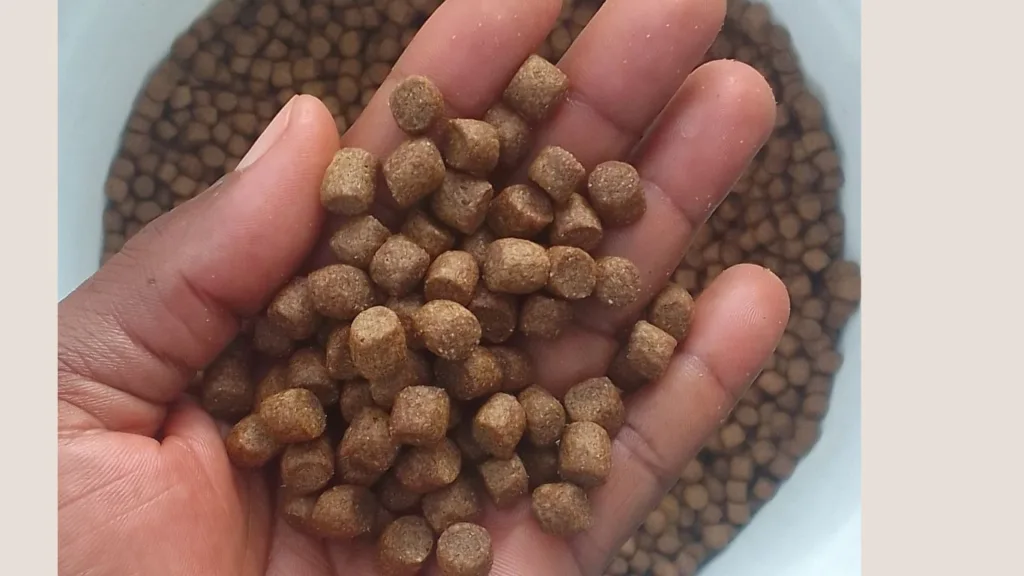
Floating pelleted fish feed (8.0mm)
What to Do if You Overfeed Your Fish
If you realize you’ve overfed your fish, it’s not too late to take corrective measures. If you notice leftover feed floating on the water’s surface, scoop it out immediately with a net. If the feed is still hard and dry, you can store it for later use. However, never leave decomposing food in the pond as it will release toxins that affect water quality and lead to fish mortality.
Also, increase the aeration in your pond after overfeeding to improve the oxygen levels and help your fish recover from any stress caused by poor water quality. You may check out the video below
Conclusion: Avoid Overfeeding for a Healthier Farm
Overfeeding fish is a mistake that can lead to serious consequences on your fish farm, including poor water quality, oxygen depletion, disease outbreaks, and financial losses from wasted feed. By practicing responsive feeding, monitoring their consumption, and using the right type of feed, you can avoid overfeeding and ensure the health and growth of your fish.
Balancing feeding is key—underfeeding stunts growth, while overfeeding leads to disease and death. Striking the right balance and ensuring that your fish are fed correctly, you’ll enjoy healthy fish and increased profits at harvest.
If you found this article helpful, please consider subscribing to our YouTube Channel for more fish farming tips and tricks.
